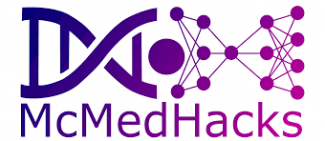Presentation – July 24th 10:00-11:30 EDT
Medical Imaging in the age of AI
Speaker: Lei Xing, PhD
Artificial intelligence-driven by deep learning has attracted much attention in the past several years and is being increasingly adopted in medical physics for various applications since the first few abstracts appeared in the 2016 AAPM Annual Meeting. The enormous success of deep learning stems from its unique capabilities of extracting essential features from big data and then making inferences. However, the data-driven process has many potential flaws, such as the demand for a large amount of annotated data and lack of interpretability. The purpose of this talk is to summarize some important applications of AI in medical imaging, ranging and identify the pitfalls of current data-driven approaches. I will also summarize recent advances in interpretable AI and present strategies for enhancing the interpretability and trustworthiness of AI-augmented tools.
Data mining in radiotherapy: understanding the link between dose and long-term side effects
Speaker: Marianne Aznar, PhD
As survival rates for cancer patients improve, late effects, such as second cancers or heart disease, are an increasing area of concern.In order to continuously improve radiation oncology treatments, it is crucial to understand the drivers of late toxicity, and the interaction between radiotherapy, other cancer treatments and co-morbidities.In this talk, we will review the limitations of current late effect research and explore the role of advanced methods such as data mining. We will also discuss uncertainties in outcome evaluation, and how machine learning approaches can help us evaluate, analyse and predict treatment-related toxicity.
Delivering value in healthcare with AI
Speaker: Mark Gooding, PhD
There are a lot of people working in AI now, there is a lot of demand, and there are a lot of start-up in this space. Is value really being delivered despite all this effort? In this presentation we will look at how we can deliver value. While our primary focus is on delivering value to the clinic, this presentation will also consider your position within the world of AI – how are you contributing to it but also how it is that helping you (or how you can help yourself) in your career, with insights from someone that tries to sit carefully on that fence between academia and industry.
Workshop – July 28th 19:00-20:30 EDT
Multimodality and outcome prediction
Instructor: Ibrahim Chamseddine, PhD
This workshop focuses on the utilization of deep learning for treatment outcome prediction. We will first discuss voxel-based analysis used for identifying outcome-significant subregions in the organ, with the specific application to radiotherapeutic dose maps. Then we will apply deep learning for predicting treatment outcome based on medical images and in combination with confounding patient-specific variables. Will present robust approaches for optimizing the model without overfitting and discuss different types of model validation.


